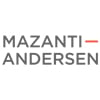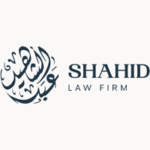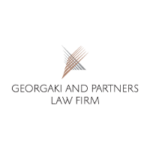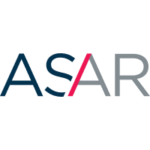-
What are the key rules/laws relevant to M&A and who are the key regulatory authorities?
For acquisitions of enterprises and M&A transactions (e.g. share or asset deals), the key source of law is the Swiss Code of Obligations (CO). Since the provisions of the CO (e.g. in the sales law) are largely non-mandatory and the law provides for a large freedom of contract, the parties can agree on and craft tailor-made solutions in purchase agreements and are free to deviate from or exclude the applicability of certain statutory concepts and default rules.
Mergers are subject to the Swiss Merger Act. The Swiss Merger Act provides for two forms of mergers, the merger by combination, where the shareholders of the merging companies become shareholders of a new company, and the merger by absorption, where the shareholders of the acquired company become shareholders of the acquiring company. The Swiss Merger Act further governs which forms of companies may be merged with each other and which not, as well as the merger process. In addition, the Swiss Merger Act provides for a statutory transfer of assets and liabilities, which can be used for the sale and transfer of businesses or parts thereof, as well as for the instrument of the statutory demerger.
In general, mergers and acquisitions in Switzerland do not require governmental approvals or permits. Exceptions apply to certain significant mergers and acquisitions, which require notification of or approval from the Swiss Competition Commission, and mergers and acquisitions in certain industry sectors, such as for example the banking, the insurance, and the telecommunication sector, which require notification of or approval by certain specialized Swiss authorities (e.g. the Swiss Financial Market Supervisory Authority). With respect to tender offers, as a means to acquire publicly traded company (see question 5), the Swiss Takeover Board (TOB) supervises each tender offer and thereby ensures that the tender offer complies with all applicable rules.
-
What is the current state of the market?
In 2024, the Swiss M&A market experienced a 4% decline in the number of transactions, with 464 deals compared to 484 in the previous year. However, despite this slight decrease in activity, the total deal volume surged by more than 50%, reaching approximately USD 115 billion (previous year: USD 72 billion). This increase was driven by several high-value transactions, including Galderma’s IPO, which was the largest Swiss transaction of the year at around USD 21.6 billion. Other major transactions included Amcor’s all-stock acquisition of Berry Global for USD 17.7 billion, the re-listing of Sunrise, a Swiss telecommunication company, with a total valuation of USD 10.2 billion, and Swisscom’s takeover of Vodafone Italia for USD 8.7 billion. Private equity firms played a more prominent role in the market, with their involvement increasing from 23% to 26% of transactions, though still below the long-term average. Swiss companies continued to be highly active in acquiring foreign firms, accounting for nearly half of all transactions, while foreign acquisitions of Swiss firms remained comparatively low (23% of the transactions).1
Venture capital investments saw another decline in 2024, with total investment volumes falling 8.5% compared to 2023, which had already experienced a sharp drop of 34.8% from 2022. The number of financing rounds decreased for the first time since 2012, while the invested median generally increased, which indicates a certain degree of consolidation among start-ups financed by investors. Exits remained at the low levels observed in 2023, with Swiss companies acquiring even fewer start-ups than in the previous year. However, investor sentiment suggests a potential turnaround in 2025.2
Footnote(s):
1 KPMG, Press release of 29 January 2025, Fewer mergers and acquisitions on the Swiss M&A market.
2 SECA and startupticker.ch, Swiss Venture Capital Report 2025, p.6.
-
Which market sectors have been particularly active recently?
The Industrial Market sector remained the most active sector in 2024, with 84 transactions and a deal volume of USD 24 billion – four times higher than in the previous year. The Telecommunications, Media and Technology (TMT) sector followed closely, recording 75 transactions and the highest sectoral deal volume at USD 26 billion. The Pharmaceuticals and Life Sciences sector maintained its strong position, ranking third with 59 transactions but registering the largest overall deal value of nearly USD 41 billion, underscoring its significance in the Swiss M&A landscape. Notably, five of the largest transactions in 2024 accounted for 57% of the total deal volume, reflecting a shift towards fewer but higher-value deals.3
Footnote(s):
3 KPMG, Press release of 29 January 2025, Fewer mergers and acquisitions on the Swiss M&A market.
-
What do you believe will be the three most significant factors influencing M&A activity over the next 2 years?
In general, Swiss M&A activity has again slightly decreased in 2024. The slowdown reflected the global economic environment concerns about inflation and geopolitical uncertainties.
With regard to the Swiss M&A market in general, we believe that interest rates and financing costs and concerns and uncertainties regarding tariffs as well as the geopolitical environment with the war in Ukraine and tensions in the Middle East continue to influence the M&A landscape in Switzerland
-
What are the key means of effecting the acquisition of a publicly traded company?
The most common instrument for acquiring control of a Swiss listed company is the public takeover offer. There are two different starting points for a public takeover offer for all shares of the target company: the mandatory offer and the change of control offer.
Mandatory Offer: A shareholder who directly, indirectly or together with concert parties acquires shares in a Swiss listed company and thereby exceeds the threshold of 33 1/3% of the voting rights of the target company (Mandatory Offer Threshold) has to submit a public takeover offer within two months of exceeding the Mandatory Offer Threshold. The mandatory offer rules do not apply in the event that the target company has a so-called opting-out provision in its articles of association, or only apply at the relevant higher threshold (up to 49%), if the target company has included in its articles of association a so called opting-up provision. The Mandatory Offer is subject to restrictive rules on the offer price, the type of consideration, the permissibility of conditions etc.
Change of Control Offer: A shareholder who directly, indirectly or together with concert parties, at the time of the launch of the public takeover offer, does not hold shares in the target company above the applicable Mandatory Offer Threshold and offers to purchase all outstanding shares in the target company and therefore exceeds the applicable Mandatory Offer Threshold, if the offer is successful, is bound by some of the rules applicable to Mandatory Offers (e.g. minimum price rule) but not by all of them (e.g. less restrictive permissibility of conditions).
A shareholder who directly, indirectly or together with concert parties does not offer to buy shares above the applicable Mandatory Offer Threshold is subject only to certain aspects of the Swiss Takeover Rules. While the minimum price rule does not apply to such type of offers, the requirement of equal treatment of shareholders and therefore the best price rule still applies: if more shares are tendered than are offered for purchase, the same percentage of the shares tendered by each shareholder must be purchased under the offer at the same price.
Very rarely only, listed Swiss companies are taken over by way of statutory mergers. The statutory merger is the transaction method of choice in order to restructure a group of Swiss companies or to merge Swiss private companies of equal size. Swiss law permits the merger of Swiss companies with foreign companies, provided that foreign law does not conflict with it. However, in practice, such cross boarder statutory mergers are rare, even in case of private companies. These transactions are more likely to take the form of reverse triangular mergers or schemes of arrangement under the applicable foreign law.
-
What information relating to a target company is publicly available and to what extent is a target company obliged to disclose diligence related information to a potential acquirer?
General corporate information on a Swiss target company, for example, information on share capital and number of shares, the articles of association, the names of members of the board of directors, the officers and registered corporate restructurings (such as statutory mergers, transfers of assets and liabilities or de-mergers) is publicly available from the commercial registry. No other information is publicly available for privately held companies, in particular neither the financial statements nor the shareholder registers are publicly available, except in special circumstances. There is no obligation for privately held companies to disclose diligence-related information to a potential buyer.
The situation is different for Swiss listed companies. Swiss stock exchanges are required to impose rules on issuers that take into account recognized international standards and include provisions for the publication of information on which investors rely to assess the characteristics of the securities and the quality of the Swiss listed company. According to the rules of the SIX Swiss Exchange (SIX), the most important of the Swiss stock exchanges, the periodic reporting obligations include the publication of the issuer’s annual report (consisting of the annual financial statements and the corresponding audit report), its corporate governance report and, if opted in, its sustainability report and the semi-annual financial statements. Publication of quarterly financial statements is voluntary and interim financial statements do not need to be audited or reviewed. Transactions of members of the board of directors and the executive committee in the issuer’s equity must be disclosed as well as information on significant shareholders. Issuers must inform the market without delay of any price-relevant facts arising in their sphere of activity, unless disclosure can be deferred (see question 16). In addition, general information about the issuer and its stock is published on the SIX website.
Generally, Swiss listed companies are not under an obligation to disclose additional information to an offeror. If, however, the target company has granted a friendly offeror access to additional information, a competing offeror has the right to access to the same information as the preferred offeror.
-
To what level of detail is due diligence customarily undertaken?
In private M&A transactions, a “red flag” due diligence has become the standard, whereby the scope of review is usually adapted to the particular industry in which the target operates in order to assess the opportunities and risks of the target’s business model.
Despite the large amount of publicly available information on Swiss listed companies, a friendly offeror will always try to conduct a due diligence review of the target. This is particularly important because the offeror, once it has launched its takeover offer, can only reduce the offer price in very limited circumstances and cannot agree on representations and warranties with the selling shareholders.
The scope of the due diligence review typically includes a review of corporate matters, equity instruments (options, convertible instruments, etc.), important commercial and financial contracts, employee and ESOP matters, intellectual property, compliance with laws, environmental issues, licenses, litigation and other matters specifically relevant to the target.
-
What are the key decision-making bodies within a target company and what approval rights do shareholders have?
Swiss company law provides for a broad presumption of competence in favor of the board of directors. In principle, the board of directors is responsible for all matters that are not reserved by law or the articles of association for the general meeting of shareholders or the auditors. Except for some fundamental control and oversight duties, which are non-alienable duties of the board of directors, the board of directors is free to delegate its powers to a management unless the articles of association prohibit such a delegation of tasks. For example, the board of directors is responsible for assessing and dealing with strategic alternatives, however, the decision on strategic alternatives are often in the competence of the shareholders such as in case of a merger, a de-merger, or, of course, the sale or exchange of shares of the company.
Given that the shareholders are eventually deciding on the success of the public takeover transaction, the question for the offeror in almost every takeover transaction is whether to seek the support of the board of directors of the target company (friendly transaction) or not (unfriendly transaction). In the past, Switzerland has seen mostly friendly transactions in which the offeror approached the target company prior to the launch of the offer with the goal to secure the support of the board of directors for the takeover (see question 12 for information on transaction agreements under which the board of directors of the target company undertakes to support an offer). If the parties cannot agree on the terms of the offer, the offeror can launch an unfriendly offer. Although the Swiss Takeover Rules do not impose additional burdens for unfriendly takeover offers, offerors often abort their takeover plans if the target company does not support the transaction.
In asset deals, the board of directors approves the sale and purchase of the respective assets. The sale of all or substantially all assets of a company, however, requires approval of the shareholders. Shareholders’ approval is also required if the articles of association are amended in connection with the asset deal (e.g., if new shares are issued or if the corporate purpose of the company is changed).
-
What are the duties of the directors and controlling shareholders of a target company?
The members of the board of directors must perform their duties with all due care and must safeguard the interests of the company in good faith. The board of directors has therefore no duty to actively seek strategic alternatives for the benefit of the shareholders. But the board of directors may also not impede the interests and freedom of decision of the shareholders. Hence, it must ensure that the shareholders, insofar as a decision is left to them, can actually decide. In case a Swiss company listed on a Swiss stock exchange is approached by an offeror, it has to evaluate whether the offer is in the interest of the company or not. In the first case, it has to support the offer, in the latter case it has to take the measures permissible under the Swiss Takeover Rules to fend off the offer (see question 24).
Upon the launch of a public takeover offer, the board of directors of the target company is required to assess the company’s interests in the offer and to prepare a report containing all the information necessary for the recipients of the offer to make an informed decision. The board report shall explain the consequences of the offer for the target company and its shareholders. It may recommend acceptance or rejection of the offer or simply set out the advantages and disadvantages of the offer without making a recommendation. If a third party fairness opinion forms the basis of the board’s recommendation, such fairness opinion will form an integral part of the report.
Swiss corporate law does not impose any fiduciary duties on shareholders vis-à-vis the company or other shareholders. For information on the disclosure obligations of significant shareholders of Swiss listed companies see question 15. Starting from the launch of a public takeover offer until the expiry of the additional offer period, all parties to the takeover proceedings and shareholders, alone or acting in concert, holding 3% or more of the voting rights of the target company must report to the stock exchange and the TOB all transactions in securities of the target company.
-
Do employees/other stakeholders have any specific approval, consultation or other rights?
In share deals, including public takeover offers, employees, creditors or contractual counterparties of the target do not have any statutory approval, consultation or other rights, except with respect to the employees if mass dismissal thresholds are met (see last paragraph below).
In statutory regulated transaction forms under the Swiss Merger Act such as statutory transfers of assets and liabilities, statutory mergers and statutory de-mergers, creditors are protected by certain mandatory provisions of law and employees must be informed prior to completion or, in case of a statutory merger or statutory de-merger prior to the shareholders’ approval. If the transaction involves measures affecting employees (e.g. dismissals, less favorable terms of employment), the employees must be consulted in due time before closing or shareholders’ approval. Further, sufficient time must be given to the employees (i.e. typically around two weeks) to react to the proposed measures, but there is no obligation to follow employees’ proposals.
The same information and consultation rights for employees apply in case of an asset deal or de-merger which is structured outside the Swiss Merger Act, provided the transaction causes a transfer of a business unit. However, there is no protection for creditors or other stakeholders.
In the event of employee dismissals that reach a certain threshold within a short period (whether or not in connection with a transaction) specific rules of a mass dismissal apply and a separate process with information and consultation rights of the employees may be triggered.
-
To what degree is conditionality an accepted market feature on acquisitions?
Private M&A transactions are in general less regulated than public ones. The overall seller-friendly environment in Switzerland thus allows the parties to freely agree on the closing conditions. This is not the case if the transaction is subject to merger control laws, which require the parties to close only after clearance is received or a waiting period has lapsed.
In public M&A transactions, potestative conditions, i.e. conditions for which the fulfillment is entirely in the hand of the offeror, are inadmissible. The offer may only be made subject to conditions over which the offeror has no control and in which the offeror has a legitimate interest. Insofar as a condition requires a contribution from the offeror, the offeror must take all reasonable measures to ensure such condition is met. Over the years, TOB practice has provided clarity as to which conditions are admissible, under which circumstances and until which point in time they must be satisfied. Such closing conditions include minimum acceptance, obtaining voting rights in the shares, gaining control over the targets’ board of directors, the absence of injunctions prohibiting the transaction, the issuance and listing of shares offered as consideration or the absence of a material adverse change. The TOB accepts only a limited number of conditions for Mandatory Offers and solely if important reasons are given (e.g. governmental approvals, etc.).
-
What steps can an acquirer of a target company take to secure deal exclusivity?
In private M&A transactions, parties are free to agree on deal exclusivity.
In public M&A transactions, the offeror usually attempts to enter into a transaction agreement with the target company, in order to obtain the support of its board of directors for the bid. The target company’s board of directors can only support the offeror, subject to a fiduciary out. This means that, in the event of a more favorable competing offer, the target company’s board of directors is released from its duties under the transaction agreement. Break fees and no shop agreements (see question 13) are other methods of improving transaction protection. In addition, offerors will seek to obtain tender agreements with significant shareholders (irrevocable) at an early stage.
-
What other deal protection and costs coverage mechanisms are most frequently used by acquirers?
Typical deal protection mechanisms in public M&A transactions are break fees / reverse break fees and no shop agreements.
According to the practice of the TOB, break fees are permissible if the amount payable in case of a break does not prevent a third party from launching a competing offer (i.e. the break fee does not restrict the target company’s shareholders’ freedom of choice with regard to offers). Whether a certain break fee amount is permissible in a transaction requires an analysis of the circumstances of the individual case. As a general guideline, the break fee amount should not exceed the costs associated with the offer.
No shop agreements, according to which the target company refrains from actively soliciting offers from third parties, are permissible under Swiss takeover law and commonly included in transaction agreements between the offeror and the target company. No talk agreements, according to which the board of the target company shall not talk to potential third-party offerors approaching the target company, are not permissible to the extent that they compromise equal treatment of a competing offeror following the launch of the competing offer or to the extent that they restrict the target company’s board of directors in its reporting obligation to its shareholders.
Other deal protection mechanisms include matching rights of the offeror or information rights with respect to third party’s requests for due diligence.
-
Which forms of consideration are most commonly used?
The consideration usually takes the form of cash, shares or other (listed or non-listed) securities, or a combination thereof. While the parties to private M&A transactions are completely free to choose the consideration (including vendor loans), Swiss Takeover Rules impose certain restrictions on the choice of consideration in public M&A transactions. Mandatory Offers must always provide for a cash-only consideration but may also offer securities. In Change of Control Offers, the offeror is only required to also offer a cash-only alternative if, in the twelve months prior to the launch of the offer, it has acquired securities of the target company against cash representing 10 % or more of the share or participation capital of the target company.
-
At what ownership levels by an acquirer is public disclosure required (whether acquiring a target company as a whole or a minority stake)?
The stock exchange and the target company have to be notified within four trading days when a person, acting alone or in concert with others, directly or indirectly, acquires or disposes of securities in a Swiss listed company and reaches or crosses any of the thresholds of 3%, 5%, 10%, 15%, 20%, 25%, 33⅓%, 50% or 66⅔% of the voting rights. The signing of the transaction is considered to be the triggering event for the disclosure obligation and not the closing of the transaction. The breach of the disclosure duties may trigger administrative and criminal proceedings whereby an intentional breach of the disclosure duties is punishable with a fine of up to CHF 10 million and a breach by negligence is punishable with a fine of up to CHF 100’000. In June 2024, the Federal Council has proposed to amend the Federal Financial Market Infrastructure act and proposed to raise the starting point of the reporting obligation from 3% to 5% of the voting rights.
-
At what stage of negotiation is public disclosure required or customary?
The negotiations between the offeror and the target company regularly constitute price-relevant information according to the listing rules of the relevant stock exchange. Therefore, disclosure of the negotiations can only be postponed, if (i) dissemination of the information might prejudice the legitimate interests of the target company, (ii) the target company ensures that the price-relevant fact remains confidential for the entire time that disclosure is postponed and (iii) the target company must be able to inform the market immediately in the event there is an information leak. Because the signing of a transaction agreement between the offeror and the target company will usually prevent further prejudice of the legitimate interests of the target company, the offer is usually launched and thus publicly announced (be it by publication of the pre-announcement of the offer or the offer prospectus itself) immediately following the signing of the transaction agreement. In private M&A, a public disclosure is customary after the signing of the sale and purchase or other key transaction agreement.
-
Is there any maximum time period for negotiations or due diligence?
According to Swiss law, there is no maximum time period for negotiations or the due diligence process. However, in public M&A transactions, once an offer has been formally launched by an offeror, a strict timetable pursuant to the Swiss Takeover Ordinance applies until the transaction is consummated.
-
Is there any maximum time period between announcement of a transaction and completion of a transaction?
Whereas in private M&A there is no maximum period between the announcement of the transaction and its completion, the Swiss Takeover Rules set clear time limits for public M&A transactions. In case a public takeover offer is announced with a so-called pre-announcement, the offeror has to publish the offer prospectus within a period of six weeks from such pre-announcement. Following publication of the offer prospectus, there is a cooling-off period of usually 10 trading days. Following the cooling-off period, a public takeover offer must remain open for a minimum of 20 trading days (subject to certain conditions a minimum of 10 trading days is possible) and a maximum of 40 trading days. If the offer is successful, the offeror must grant a right to subsequently accept the offer for 10 trading days from the publication of the announcement of the interim results (additional acceptance period). As a rule, the takeover offer must be settled no later than on the 10th trading day after the end of the additional acceptance period. In the case the offer remains subject to conditions, the settlement of the offer may be postponed by up to four months from the end of the additional acceptance period, provided the offeror has reserved this right in the prospectus. An extension of the settlement postponement beyond four months is subject to approval by the TOB, which requires the offeror to demonstrate a special interest and a credible expectation that the outstanding conditions will be fulfilled shortly. The interests of the tendering shareholders must also be considered.
-
Are there any circumstances where a minimum price may be set for the shares in a target company?
In public M&A transactions, minimum price rules apply to mandatory offers and change of control offers. The minimum price is the higher of (i) the 60-day volume weighted average price or (ii) the highest price paid by the offeror in the last twelve months preceding the launch of the offer.
In addition, all offers governed by Swiss Takeover Rules must comply with the best price rule. This means that if the offeror acquires shares of the target company in the six months following the lapse of the additional offer period at a price exceeding the offer price, such higher price must be paid to all shareholders of the target company who sold or are willing to sell their shares in the offer.
-
Is it possible for target companies to provide financial assistance?
There are no explicit rules under Swiss law on financial assistance. However, with respect to a Swiss (direct or indirect target) company, Swiss corporate and tax law restrictions apply not only in a situation with minority shareholders but also in a wholly owned group context if, absent an arm’s length consideration, such Swiss company provides any monetary benefit, e.g., security or guarantees to, or assume liabilities of, its direct or indirect shareholder(s) (“up-stream”) or to other affiliates that are not direct or indirect subsidiaries of the Swiss company (“cross-stream”).
Therefore, if a Swiss target entity is to guarantee or secure any acquisition financing received by the purchasing entity (or any of its affiliates, but for the target) such financial assistance is, in essence, only permissible if limited to an amount that the target company is able to distribute as dividends and if the same corporate formalities of a dividend payment are complied with (board and shareholder approval as well as in some circumstances a report by the auditor that confirms the amount that is free to distribute) and the company’s purpose clause needs to provide for a specific financial assistance wording. Also, respective up-stream or cross-stream guarantees or security may give rise to Swiss withholding taxes.
-
Which governing law is customarily used on acquisitions?
In private M&A transactions, parties are generally free to agree on a governing law, provided certain Swiss law aspects of the transaction are governed by Swiss law such as the transfer of shares of a Swiss company, the transfer of real estate or other assets physically located in Switzerland. The same holds true if the transaction involves certain statutory transaction structures such as statutory mergers, demergers or transfers of assets and liabilities. Therefore, in most cases when a Swiss target company is involved in a share deal, a statutory merger, demerger or transfer of assets and liabilities between Swiss companies, the transaction agreement is governed by Swiss law.
Public takeovers of Swiss listed companies are governed by Swiss Takeover Rules.
-
What public-facing documentation must a buyer produce in connection with the acquisition of a listed company?
The offeror may choose to publish a pre-announcement of the bid before publication of the prospectus. The pre-announcement summarizes the main terms of the offer and triggers various effects in favor of the offeror. Once the pre-announcement or the prospectus is published, the offer is launched and cannot be withdrawn.
The most important public document in a takeover offer is the prospectus. The prospectus is a comprehensive document designed to enable the shareholders of the target company to make their decision in full knowledge of all relevant facts; the content of the prospectus is defined by the Swiss takeover rules. In addition to the terms and conditions, the prospectus must contain certain information about the offeror, the financing of the offer, the offeror’s plans with respect to the target company, and any agreements between the offeror and the target company (including the transaction agreement, if any). Prior to its publication, a special review body must review the prospectus and its opinion on several points must be included and published in the prospectus.
Upon expiry of the offer period and the additional offer period, the offeror must publish the interim and final results of the offer.
All offer documents must be published electronically in German and French and made available on the offeror’s website or on a website dedicated to the offer. Non-Swiss offerors often choose to provide an English version voluntarily. Furthermore, also the TOB makes available the offer documents on its website and the documents are usually also published on the websites of the main Swiss financial information providers.
-
What formalities are required in order to document a transfer of shares, including any local transfer taxes or duties?
The transfer of shares in a Swiss company requires a share purchase agreement and the handover of endorsed share certificates. If no certificates exist and the shares only exist as uncertificated securities, a written declaration of assignment is required or, in case the shares exist as intermediated securities, a transfer instruction and the crediting of the shares to the acquirer’s securities account. Swiss law also provides for the possibility to establish ledger-based securities as well as for shares in a Swiss share corporation in the form of cryptographic tokens. In these cases, the transfer then follows the rules set forth in the registration agreement.
Furthermore, the articles of association of Swiss companies may stipulate that a transfer of shares require the consent of the company. In such case, the approval of the board of directors is required for the transfer to become legally effective. Shareholders may also be required to declare that they hold the shares in their own name and on their own account.
With regard to shares of listed Swiss companies, the company may only reject an acquirer as a shareholder if the articles of association provide for a percentage limitation. As with private companies, the shareholder may be required to declare that he holds the shares in his own name and for his own account.
A Swiss federal securities transfer tax may apply on transfers for a consideration of shares if a “Swiss securities dealer” is involved as a party or intermediary in the transaction. Swiss securities dealers include Swiss banks, Swiss professional traders and brokers, and Swiss companies holding taxable securities (such as shares and bonds) with a book value of more than CHF 10 million according to their latest statutory balance sheet. The tax rate is 0.15% for shares of Swiss companies and 0.3% for shares of non-Swiss companies. The Swiss securities dealer is responsible for declaring and paying the securities transfer tax, but the parties are free to agree on who should bear the tax. Certain types of investors (e.g. collective investment schemes, listed non-Swiss companies and their non-Swiss subsidiaries) and certain types of transactions (e.g. redemption of shares and certain intragroup transfers and reorganizations) are exempt.
If a company’s principal activities and assets relate to real estate investments without such real estate being used for an active business, cantonal and/or municipal real estate transfer taxes as well real estate capital gain tax may apply to a share transfer if the real estate is located in a canton/municipality that levies such a tax.
-
Are hostile acquisitions a common feature?
Even though permitted, hostile acquisitions are very rare in Switzerland.
-
What protections do directors of a target company have against a hostile approach?
From the time of the launch of the offer until the announcement of the result, Swiss takeover rules prevent the board of directors of the target company from taking defensive measures not approved by the shareholders’ meeting.
This includes, for example, any purchase or sale of assets with a value/price of more than 10% of the balance sheet total or assets that contribute more than 10% to the profitability of the target company. Accordingly, Swiss takeover rules do not permit “scorched earth”, “fat man” or “pac man” strategies.
To the extent that the bidder has identified certain divisions of the target company as the main object of its bid, Swiss legislation prevents the board of directors of the target company from selling such divisions (and from using a “crown jewel defense strategy”). Furthermore, Swiss law prohibits “golden parachutes” for members of the board of directors or the management of the target company. To a certain extent, the board of directors of the target company may use the announcement of a share buyback program or percentage restrictions in the articles of incorporation, voting rights restrictions as well as qualified quorum and majority requirements to amend the articles of incorporation in order to prevent hostile takeover attempts.
The target company must report any planned defensive measures.
-
Are there circumstances where a buyer may have to make a mandatory or compulsory offer for a target company?
See the description of the Mandatory Offer under question 5.
-
If an acquirer does not obtain full control of a target company, what rights do minority shareholders enjoy?
Shareholders (even if they hold only one share) have the right (i) to be treated equally by the board of directors, (ii) to receive notice of all shareholders’ meetings, (iii) to get access to the annual report and the auditor’s’ report, and (iv) to attend and participate in any shareholders’ meeting, to vote and to ask questions to the board of directors and the auditors during the meeting.
In addition, any shareholder may propose to the general meeting that a special audit be initiated to investigate specific facts, provided that such audit is necessary for the shareholder to exercise his or her rights and (cumulatively) that the shareholder has already exercised the rights to obtain information and to inspect the books and accounts of the company pursuant to (iii) and (iv) above. If the general meeting refuses to appoint a special auditor, one or more shareholders representing at least 5% of the share capital or the votes (or 10% of the share capital or the votes in case of non-listed companies) may, within three months of the resolution of the general meeting refusing the special audit, apply to a judge for the appointment of a special auditor.
Shareholders wishing to convene an extraordinary general meeting must together represent at least 5% of the share capital or the votes (or 10% of the share capital or the votes of in case of non-listed companies). Shareholders wishing to request that certain items be included on the agenda must together represent at least 0.5% of the share capital or the votes (or 5% of the share capital or the votes in case of non-listed companies).
The Swiss Code of Obligations requires approval of certain important shareholder resolutions by a qualified majority of shareholders, i.e. an absolute majority of the par value of the shares represented at the meeting and a two-thirds majority of the votes cast. The Articles of Association may make other resolutions subject to a qualified quorum.
-
Is a mechanism available to compulsorily acquire minority stakes?
Following a public takeover offer, provided an offeror holds more than 98% of all voting rights in a listed Swiss company, such offeror is entitled to file a squeeze-out claim against the target company with the competent court within three months of the end of the additional acceptance period. In its decision, the competent court may cancel the shares of the remaining minority shareholders. Subsequently, the target company must re-issue these shares and allocate them to the successful offeror against payment of the offer price to the squeezed-out minority shareholders.
If an offeror holds more than 90% of all shares, it may squeeze out the remaining minority shareholders by merging the target company into a subsidiary of the offeror and providing the minority shareholders with cash or securities other than securities of the surviving company (squeeze-out merger under the Swiss Merger Act). Except in special circumstances, the merger consideration will be equal to the price offered for the shares in the public takeover offer. Since the Swiss Merger Act grants minority shareholders appraisal rights, the prudent bidder will only proceed with the squeeze-out merger once the best price rule no longer applies (see question 18). By doing so, the offeror is able to ensure not to trigger the effects of the best price rule even if a court were to find in an appraisal proceeding that the price paid for the shares in the public takeover offer was too low. This because, in such case, the offeror does not have to pay the higher value of the shares to all tendering shareholders, but only to the squeezed-out minorities.
Switzerland: Mergers & Acquisitions
This country-specific Q&A provides an overview of Mergers & Acquisitions laws and regulations applicable in Switzerland.
-
What are the key rules/laws relevant to M&A and who are the key regulatory authorities?
-
What is the current state of the market?
-
Which market sectors have been particularly active recently?
-
What do you believe will be the three most significant factors influencing M&A activity over the next 2 years?
-
What are the key means of effecting the acquisition of a publicly traded company?
-
What information relating to a target company is publicly available and to what extent is a target company obliged to disclose diligence related information to a potential acquirer?
-
To what level of detail is due diligence customarily undertaken?
-
What are the key decision-making bodies within a target company and what approval rights do shareholders have?
-
What are the duties of the directors and controlling shareholders of a target company?
-
Do employees/other stakeholders have any specific approval, consultation or other rights?
-
To what degree is conditionality an accepted market feature on acquisitions?
-
What steps can an acquirer of a target company take to secure deal exclusivity?
-
What other deal protection and costs coverage mechanisms are most frequently used by acquirers?
-
Which forms of consideration are most commonly used?
-
At what ownership levels by an acquirer is public disclosure required (whether acquiring a target company as a whole or a minority stake)?
-
At what stage of negotiation is public disclosure required or customary?
-
Is there any maximum time period for negotiations or due diligence?
-
Is there any maximum time period between announcement of a transaction and completion of a transaction?
-
Are there any circumstances where a minimum price may be set for the shares in a target company?
-
Is it possible for target companies to provide financial assistance?
-
Which governing law is customarily used on acquisitions?
-
What public-facing documentation must a buyer produce in connection with the acquisition of a listed company?
-
What formalities are required in order to document a transfer of shares, including any local transfer taxes or duties?
-
Are hostile acquisitions a common feature?
-
What protections do directors of a target company have against a hostile approach?
-
Are there circumstances where a buyer may have to make a mandatory or compulsory offer for a target company?
-
If an acquirer does not obtain full control of a target company, what rights do minority shareholders enjoy?
-
Is a mechanism available to compulsorily acquire minority stakes?





























